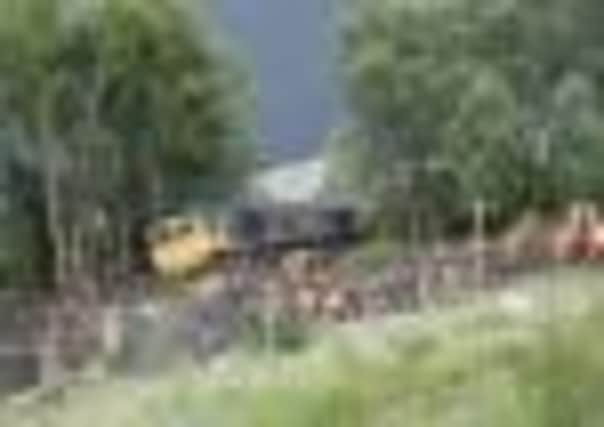Owners write off derailed locomotive due to costs


The freight engine, named the Eco Express, will be cannibalised for spare parts despite escaping serious damage, although experts said it was “incredibly unusual” to write off a locomotive that was only ten years old and cost upto £2m.
It has not been moved since it struck a boulder on a remote stretch of the Glasgow-Fort William line above Loch Treig more than seven months ago, which is three miles from the nearest road. The driver, who escaped injury, was rescued by helicopter.
Advertisement
Hide AdAdvertisement
Hide AdOperator GB Railfreight is understood to have explored several salvage options, including upgrading a 17-mile track from one of the closest stations so the locomotive could be taken out by lorry. However, they were all ruled out because the cost involved was estimated at more than £1 million.
Difficulties hampering the recovery included the awkward position of the 70ft-long locomotive, which has been covered and tethered with cables to prevent it falling further down the steep embankment towards the loch.
No rail crane able to lift the 130-tonne locomotive is available, and it has been deemed too difficult to bring in a crane over land because of the lack of road access. Instead, the engine will be taken apart and winched in sections onto rail trucks to be taken away.
The crash happened when a torrential downpour last June triggered a landslip from 250ft above the railway between Corrour and Tulloch stations. The locomotive and the front five of the train’s 24 wagons, which were carrying aluminium powder from Blyth port in Northumberland to a smelter in Fort William, were derailed.
The UK Department for Transport’s rail accident investigation branch said the locomotive had come to rest on a “natural ledge” on the slope, preventing it from crashing into the loch.
Network Rail, which is responsible for the line, said the locomotive would be removed in sections in the summer when the weather improved. A spokesman said: “It has to be that way, as creating the site conditions needed for a lift were prohibitive and could exceed the worth of the locomotive.”
Corrour Estate, which owns the land involved, said it had been reassured the locomotive did not pose any environmental danger.